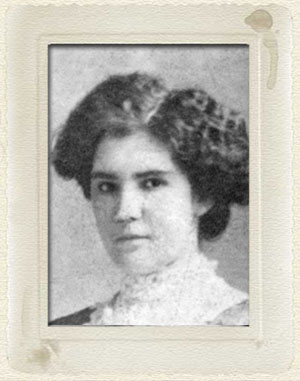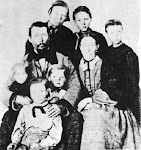2.04.2010
(58) Zemira presiding elder at Springdale
By April 20, after living less than 5 months in Panguitch, they were ready to move and headed for Springdale through Bear Valley on bad roads (the Bear Valley road was a narrow winding dirt road) and it snowed all day.
He relates: “21- Reached the upper herd house with great difficulty, with one wagon, having left two behind, the distance traveled only about four miles. 22- went back and brought up the two wagons left behind, went on feeling out the road with our feet, (they couldn’t tell where the road was because of the deep snow) crossed the divide and made it into little Creek canyon. Very cold night. On the 23rd I sent my son James back. He had come thus far to help us over the mountain with an extra span of horses.”
He brought his second wife, Caroline and their children with him at first, and after eight days of traveling, they arrived at Springdale the place of their future home, having stayed the night before with his uncle Zemira and Aunt Amy Terry Draper at Rockville.
(Incidentally, this Zemira Draper who married Amy Terry, was the beloved uncle with whom our Zemira Palmer lived, in the household of his Draper grandparents during the days of Kirtland Camp and the Nauvoo period. He died at Rockville January 9, 1876.)
A couple of days later Zemira examined the old Springdale town site, which had once been built up but was afterwards vacated on account of Indian troubles. There were lots and un-surveyed land, enough to accommodate 40 or 50 families, but there were now only seven families living there. He was the presiding elder of Springdale, but to attend Church they had to go to Rockville, which was four miles distant, or else go to Shonesburg two miles below Springdale then two miles or so up the east fork of the Virgin River. These two places had the United Order.
He went right to work at Springdale. He plowed and planted cane and a garden, hauled wood and helped care for the Order’s grape cuttings. He purchased a farm from William Heaps, which was up the River in a little place called Zion (which had been settled, but no families there now). He paid $750 for it. Concerning this farm, he mentions later, “Went up to my farm—found that 1 ½ acres of land had been washed away by high water”81 (a common occurrence along the Virgin River).
Subscribe to:
Post Comments (Atom)
Contributors

Lucile Brubaker (and her mother Lenna Cox Wilcock) are also contributing to this blog.





No comments:
Post a Comment